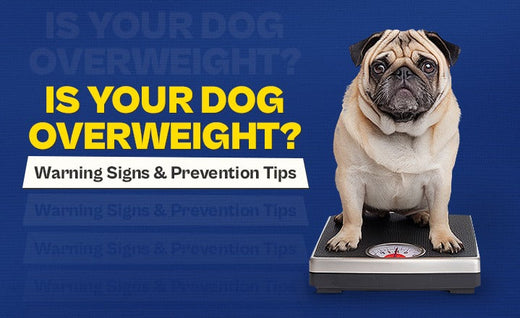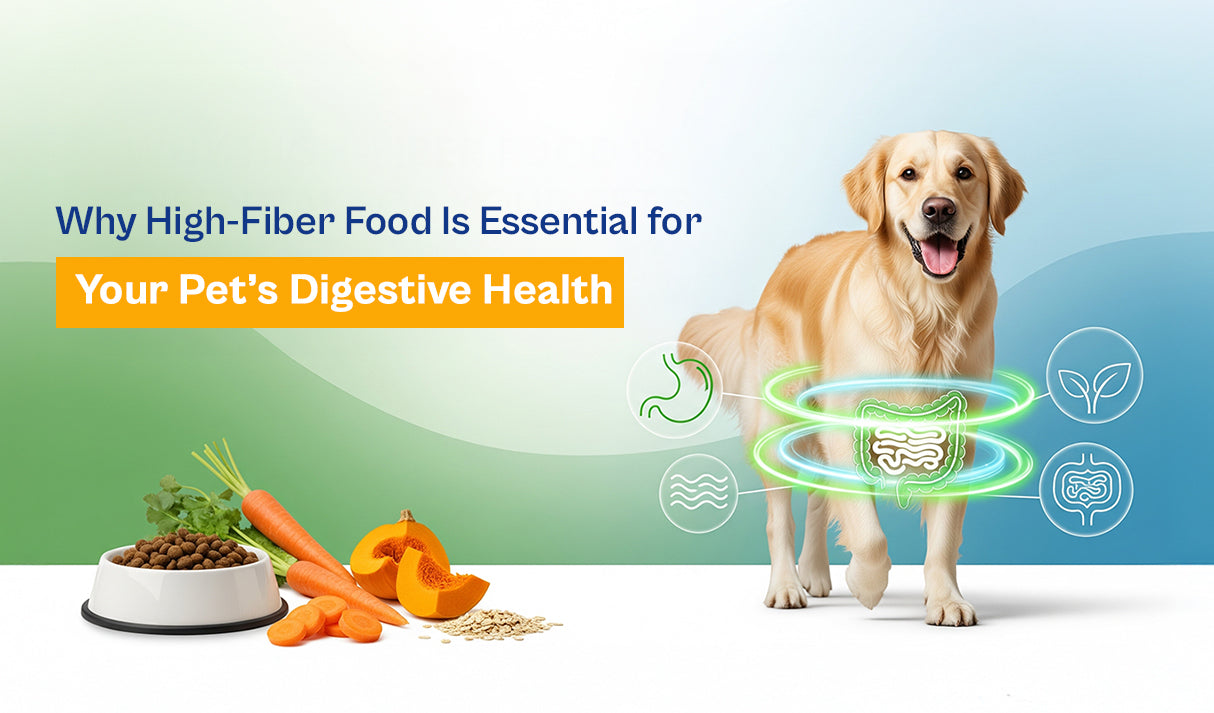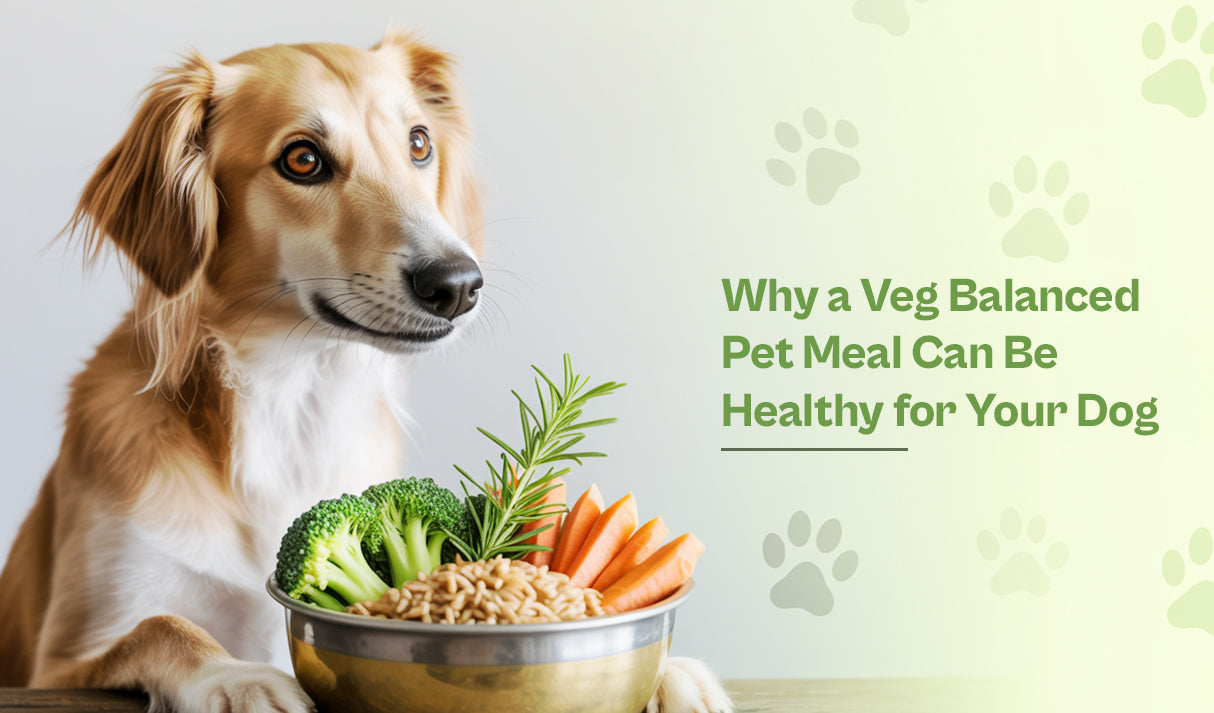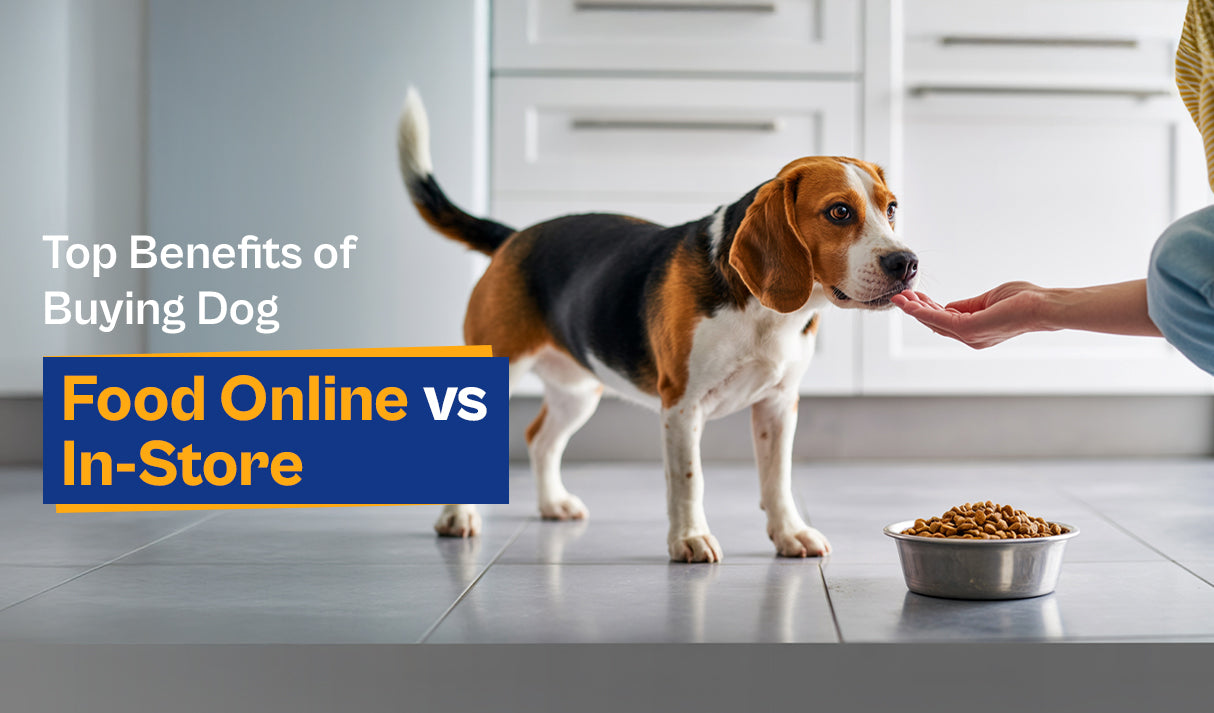Is Your Dog Overweight? Warning Signs and Prevention Tips

Being a doting paw-rent, you might not think a few extra pounds could harm your furry baby. Overweight four-legged companions may look cute and chubby, but those extra flabs can severely impact their health and even become life-threatening.
So, what can you do to prevent this? First things first, stop giving them table scraps. While it may feel like your way of showing love and care, it’s actually affecting their longevity.
Obesity can lead to serious health issues like heart disease, diabetes, and joint problems. But how can you tell if your dog is overweight, and more importantly, how can you prevent it?
In this blog, we’ll discuss the warning signs of overweight dogs, the main causes of obesity in dogs, and some simple yet effective tips for preventing and managing weight issues. We’ll also share insights on maintaining a healthy weight using the right dog food.
How Can We Prevent Obesity in Dogs?
A recent survey by CanineKart, revealed that approximately 34.4% of dogs in India are overweight, and 25.6% are classified as obese. This statistic highlights the urgent need for better dietary practices.
The solution starts with a healthy lifestyle, including the right food, exercise, and portion control.
Here are a few effective prevention tips:
Control Meal Portions
Do not overfeed your dog and call it love. One of the easiest ways to prevent obesity is by controlling how much pet food your companion takes every day.
Overfeeding is a common cause of weight gain in dogs. Stick to recommended serving sizes, and avoid the temptation to give your dog yummy treats under the table.
Choose Healthy Dog Food
Opt for dog food that is nutritionally balanced and supports your dog’s specific needs. Look for high-quality pet food with genuine protein, healthy fats, minerals, vitamins, and fiber.
A balanced nutrition is the key to weight management. If you're unsure, consult your vet for advice on the best food for your dog’s breed, age, and activity level.
Encourage Regular Exercise
Regular exercise helps in maintaining a healthy weight. Indulge your puppy in activities like walking and running that can help your dog burn calories.
Ensure your dog gets enough exercise to match its age and energy levels. Aim for at least 30 minutes of physical activity every day to make your pooch fit and healthy.
Monitor Treats and Snacks
Do not give treats to your dogs in excess. You may believe that it is a great way to bond, but they can contribute to weight gain. Keep treats minimal and opt for healthier options.
How Do You Maintain a Dog’s Weight?
Maintaining a dog’s weight involves consistency and monitoring. It’s not just about putting your dog on a diet; it’s about creating a healthy routine that includes proper feeding habits, exercise, and regular vet check-ups.
Here’s how to maintain your dog’s weight:
-
Track Weight Changes
Weigh your dog regularly to track any weight fluctuations. If your dog is gaining weight, you may need to adjust their food portions or increase exercise.
-
Adopt a Consistent Feeding Schedule
Keep a regular feeding schedule. This helps your dog’s metabolism stay balanced and prevents overeating. Avoid free-feeding, which can lead to overeating.
-
Regular Vet Visits
Regular check-ups with the vet are essential to ensure your dog’s weight is on track. Your vet can offer personalized advice on diet, exercise, and educate you on any underlying health issues contributing to weight gain.
-
Choose the Right Pet Products
Visit trusted online pet shops to buy pet products that promote healthy weight management. This includes low-calorie treats and weight control dog food with added nutrients to support muscle health.
What Is the Main Cause of Obesity in Dogs?
Obesity in dogs can be caused by the mix of some factors, but the most common causes are:
Overfeeding: Many pet owners feed their dogs too much, or they may give them too many treats.
Lack of Exercise: Dogs that don’t get enough exercise are more likely to gain weight. Physical activity helps burn calories and keep your furry friend healthy.
Poor Diet: Low-quality pet food can lead to weight gain. Some dog foods may be high in calories, fats, and carbs, which may not be suitable for your puppy.
Medical Conditions: Some health issues, such as hypothyroidism or arthritis, can contribute to weight gain. If you suspect a medical condition, consult with your vet.
Warning Signs That Your Dog Is Overweight
Here are some common warning signs you must recognize and act upon early:
- Ribs Are Hard to Feel: If you can’t feel your dog’s ribs easily, it may be a sign they’re carrying extra flabs.
- No Waistline: A healthy dog should have a noticeable waistline. If their body looks round and barrel-shaped, they may be overweight.
- Tiredness: Overweight dogs may feel lethargic more easily, and may have trouble with active movements.
- Difficulty Breathing: Extra weight can put pressure on a dog’s chest and lungs, leading to difficulty breathing.
Puppy Foods: Starting Healthy Habits Early
If you’re raising a puppy, it’s important to start feeding them the right food from the beginning to prevent obesity later in life.
Puppy foods in India and globally are crafted with precision to support growth, but they should be given in appropriate portions based on your puppy's breed and activity level.
Obesity in dogs is a serious issue, but it is also preventable. By maintaining proper feeding habits, encouraging regular exercise, and using the right dog food, you can help your pooch stay fit and healthy.
At Hungertail, we offer premium pet products designed to support your dog’s health. Our Puppy Power food is packed with high-quality nutrients your growing puppy needs to stay strong and active.
Explore our wide range of pet food options today to help your dog lead a healthier life!



